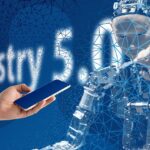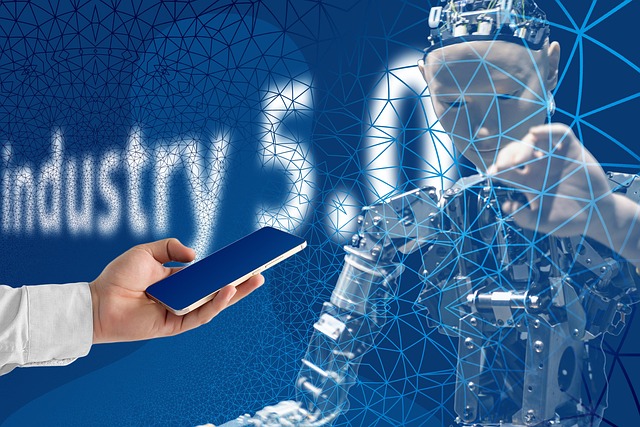# The Future of AI: How Advanced Technologies Are Reshaping Industries and Daily Life
Artificial Intelligence (AI) has transitioned from a futuristic concept to an integral part of our daily lives. As advanced technologies evolve, their applications become increasingly pervasive across various sectors. This article explores the transformative impact of AI on industries and everyday experiences, highlighting its potential to reshape the future.
## Revolutionizing Industries
In recent years, AI has emerged as a driving force behind significant changes in numerous industries, including healthcare, finance, and manufacturing. The healthcare sector, in particular, has witnessed remarkable advancements due to AI technologies. Machine learning algorithms now enable early detection of diseases by analyzing medical images with unparalleled accuracy. For instance, AI systems can identify anomalies in X-rays and MRIs, aiding radiologists in diagnosing conditions such as cancer at earlier stages. This not only enhances patient outcomes but also reduces the burden on healthcare professionals.
Moreover, the financial industry is undergoing a seismic shift as AI-driven tools enhance decision-making processes. Automated trading systems leverage algorithms to analyze market trends and execute trades at lightning speed, often outperforming human traders. Additionally, AI-powered chatbots are revolutionizing customer service by providing real-time assistance and personalized financial advice. This level of efficiency and responsiveness is reshaping consumer expectations, pushing traditional banks to adapt or risk obsolescence.
Manufacturing, too, is experiencing a renaissance fueled by AI technologies. Smart factories, powered by the Internet of Things (IoT) and AI, enable real-time monitoring and predictive maintenance of machinery. This integration minimizes downtime and optimizes production processes, leading to significant cost savings. Robotics, enhanced by AI, are taking on more complex tasks, increasing productivity while ensuring safety in environments that may be hazardous for human workers. As industries continue to embrace AI, the potential for innovation and efficiency appears limitless.
## Transforming Daily Life
Beyond the confines of industries, AI is also redefining our everyday experiences. From smart home devices to personalized digital assistants, AI is increasingly becoming a part of our daily routines. Voice-activated assistants like Amazon’s Alexa or Apple’s Siri have transformed how we interact with technology, allowing us to control our environments through simple voice commands. This convenience is not merely a luxury; it is paving the way for more accessible technology for individuals with disabilities, enabling them to engage with their surroundings in unprecedented ways.
In addition to enhancing convenience, AI is also reshaping how we consume information and entertainment. Streaming services use sophisticated algorithms to analyze viewing habits, providing tailored recommendations that keep users engaged. Social media platforms employ AI to curate content feeds, influencing the way we connect with others and perceive the world around us. This personalization, while beneficial, also raises important questions about privacy and data security, necessitating a careful examination of the ethical implications of AI in our lives.
Furthermore, AI is making significant strides in education, offering personalized learning experiences that cater to individual student needs. Adaptive learning platforms utilize AI to assess a student’s progress and adjust the curriculum accordingly. This tailored approach not only enhances learning outcomes but also fosters a greater sense of engagement among students. As educational institutions increasingly adopt these technologies, the potential for democratizing education becomes more pronounced, allowing learners from diverse backgrounds to access high-quality resources.
## Ethical Considerations and the Path Forward
Despite the myriad benefits AI brings, it is essential to address the ethical considerations that accompany its rise. The potential for job displacement due to automation is a pressing concern, as AI systems become capable of performing tasks traditionally carried out by humans. Industries must grapple with the implications of this shift, balancing the pursuit of efficiency with the need for a workforce that is equipped for a changing job landscape. Reskilling and upskilling initiatives will be crucial in preparing workers for the new roles that will emerge in an AI-driven economy.
Additionally, the issue of bias in AI algorithms cannot be overlooked. As these systems learn from historical data, they may inadvertently perpetuate existing biases, leading to unfair outcomes in areas such as hiring, lending, and law enforcement. Addressing these biases requires a concerted effort from developers, policymakers, and stakeholders to ensure that AI technologies are designed and implemented in a manner that promotes fairness and equity.
Looking ahead, collaboration will be key in shaping the future of AI. Governments, businesses, and academia must work together to establish frameworks that guide the ethical development and deployment of AI technologies. By fostering an environment of innovation while prioritizing ethical considerations, society can harness the full potential of AI to enhance industries and improve daily life.
## Conclusion
The future of AI is not merely a technological evolution; it represents a fundamental shift in how we interact with the world. As advanced technologies continue to reshape industries and daily life, the possibilities appear boundless. However, navigating the challenges and ethical considerations that accompany this transformation will be crucial for ensuring that AI serves as a force for good. By embracing innovation while remaining vigilant about its implications, society can create a future where AI enhances human experiences and drives progress across all sectors. The journey ahead is one of collaboration, responsibility, and an unwavering commitment to harnessing the power of AI for the betterment of humanity.











